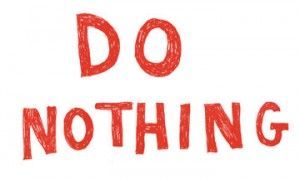The Necessary Art of Subtraction
The tendency of our lives, businesses, art, is to keep adding: more furniture, clothes, gadgets, tasks, appointments, features to websites and apps, words to our writing.
Continual addition isn’t sustainable or desirable:
- Too many things to do means we’re always busy, with no time for rest, stillness, contemplation, creativity, time with loved ones.
- Overwhelming customers with choices means they’re less likely to make an actual choice. They’d prefer that we curate the best.
- Too many possessions is clutter, visual stress, cleaning, maintenance, debt, less happiness.
- Too many tasks makes it harder to focus on any one thing or get anything done.
- Too many things we want to learn means we never learn anything well.
Subtraction is beautiful: it creates space, time, clarity.
Subtraction is necessary: otherwise we are overburdened.
Subtraction can be painful: it means letting go of a child.
Subtraction is an art that improves with practice. Subtraction can be practiced on your schedule, task list, commitments list, possessions, reading list, writing, product line, distractions.
What can you subtract right now?

